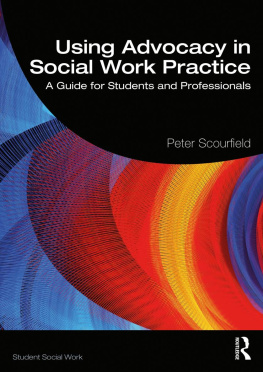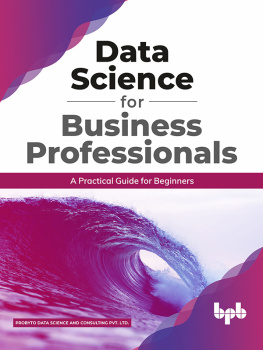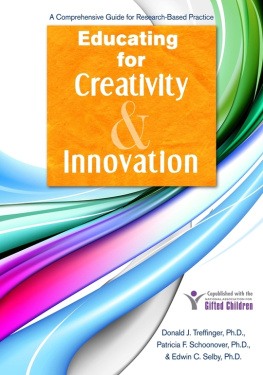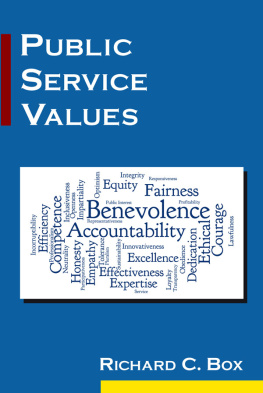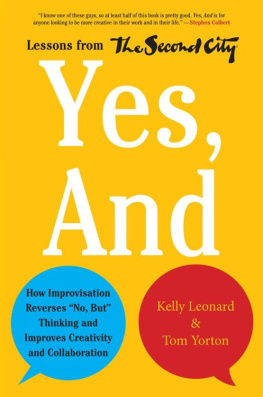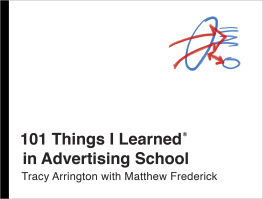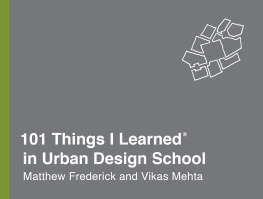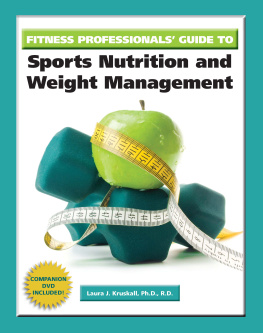The Reflective Practitioner

Library of Congress Cataloging in Publication Data
Schn, Donald A.
The reflective practitioner.
Includes bibliographical references and index.
1. Professions. 2. Thought and thinking. 3. Self-knowledge, Theory of. I. Title.
HD8038.A1S35 1982 153.4 8270855
ISBN-13: 978-0-786-72536-6
Copyright 1983 by Basic Books, Inc.
Designed by Vincent Torre
57 56 55 54 53 52
Contents
This exploration of professional knowledge stems directly from my working life as an industrial consultant, technology manager, urban planner, policy analyst, and teacher in a professional school. Because of these experiences, the question of the relationship between the kinds of knowledge honored in academia and the kinds of competence valued in professional practice has emerged for me not only as an intellectual puzzle but as the object of a personal quest. I have become convinced that universities are not devoted to the production and distribution of fundamental knowledge in general. They are institutions committed, for the most part, to a particular epistemology, a view of knowledge that fosters selective inattention to practical competence and professional artistry.
This is not, of course, an unfamiliar point of view. Many people use the term academic in its pejorative sense. On the other hand, complaints about the elitism or obscurantism of the universities tend to be associated with a mystique of practical competence. When people use terms such as art and intuition, they usually intend to terminate discussion rather than to open up inquiry. It is as though the practitioner says to his academic colleague, While I do not accept your view of knowledge, I cannot describe my own. Sometimes, indeed, the practitioner appears to say, My kind of knowledge is indescribable, or even, I will not attempt to describe it lest I paralyze myself. These attitudes have contributed to a widening rift between the universities and the professions, research and practice, thought and action. They feed into the universitys familiar dichotomy between the hard knowledge of science and scholarship and the soft knowledge of artistry and unvarnished opinion. There is nothing here to guide practitioners who wish to gain a better understanding of the practical uses and limits of research-based knowledge, or to help scholars who wish to take a new view of professional action.
We are in need of inquiry into the epistemology of practice. What is the kind of knowing in which competent practitioners engage? How is professional knowing like and unlike the kinds of knowledge presented in academic textbooks, scientific papers, and learned journals? In what sense, if any, is there intellectual rigor in professional practice?
In this book I offer an approach to epistemology of practice based on a close examination of what some practitionersarchitects, psychotherapists, engineers, planners, and managersactually do. I have collected a sample of vignettes of practice, concentrating on episodes in which a senior practitioner tries to help a junior one learn to do something. In my analysis of these cases, I begin with the assumption that competent practitioners usually know more than they can say. They exhibit a kind of knowing-in-practice, most of which is tacit. Nevertheless, starting with protocols of actual performance, it is possible to construct and test models of knowing. Indeed, practitioners themselves often reveal a capacity for reflection on their intuitive knowing in the midst of action and sometimes use this capacity to cope with the unique, uncertain, and conflicted situations of practice.
The heart of this study is an analysis of the distinctive structure of reflection-in-action. I shall argue that it is susceptible to a kind of rigor that is both like and unlike the rigor of scholarly research and controlled experiment. I shall also consider the question of its limits, some of which derive from myths about the relation of thought to action, while others are grounded in powerful features of the interpersonal and institutional contexts that we create for ourselves.
Finally, I shall suggest implications of the idea of reflective practiceimplications for the professionals relation to his clients, for the organizational settings of practice, for the future interaction of research and practice, and for the place of the professions in the larger society. (The question of education for reflective practice, which I plan to treat more fully in a later book, I shall touch on very lightly here.)
The contributions I have found most helpful in this endeavor are those of people for whom research functions not as a distraction from practice but as a development of it. The late Raymond Hainer, for many years my closest friend and colleague, first made it possible for me to see the terrain I am now exploring. Chris Argyris, with whom I have worked closely for the last decade, has been a model of commitment to reflective practice. Jeanne Bamberger has introduced me to the joys and pains of close attention to the intuitive thinking revealed in the very particular phenomena of actual performance. And Martin Rein, with whom I taught several seminars on professional education, has shaped my ideas by giving me the benefit of criticisms derived from an inside view of my enterprise.
I am grateful to Yehudah Elkana, director of the Van Leer Institute in Jerusalem, who provided a hospitable environment for my writing in the spring of 1979. And I am especially indebted to the Massachusetts Institute of Technologys Division for Study and Research in Education where I have found a climate more conducive to this work than any I believe I could have found elsewhere.
Donald A. Schn
Cambridge, Massachusetts
1982
The professions have become essential to the very functioning of our society. We conduct societys principal business through professionals specially trained to carry out that business, whether it be making war and defending the nation, educating our children, diagnosing and curing disease, judging and punishing those who violate the law, settling disputes, managing industry and business, designing and constructing buildings, helping those who for one reason or another are unable to fend for themselves. Our principal formal institutionsschools, hospitals, government agencies, courts of law, armiesare arenas for the exercise of professional activity. We look to professionals
But although we are wholly dependent on them, there are increasing signs of a crisis of confidence in the professions. Not only have we witnessed well-publicized scandals in which highly esteemed professionals have misused their autonomywhere doctors and lawyers, for example, have used their positions illegitimately for private gainbut we are also encountering visible failures of professional action. Professionally designed solutions to public problems have had unanticipated consequences, sometimes worse than the problems they were designed to solve. Newly invented technologies, professionally conceived and evaluated, have turned out to produce unintended side effects unacceptable to large segments of our society. A professionally conceived and managed war has been widely perceived as a national disaster. Professionals themselves have delivered widely disparate and conflicting recommendations concerning problems of national importance, including those to which professional activities have contributed.
Next page

